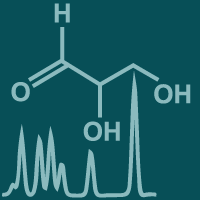Topic Editors

Tissue-Specific, Disease-Signatured Macrophages in Control of Redox and Antioxidation in Metabolic Diseases
Topic Information
Dear Colleagues,
Reactive oxygen species (ROS) compose a complicated network signaling system, known as redox regulation, which is critical for maintenance of the homeostasis and metabolism of the human body. The imbalance of oxidation and anti-oxidation causes metabolic disorders, leading to many prevalent diseases, such as cancer, cardiovascular diseases, neurodegenerative diseases and diabetes. Macrophages play a pivotal role in immunity and nearly all physiological and pathological processes, during which macrophages act not only as one of the major target cells of oxidants, but also as important effector cells of inducible endogenous antioxidants. Accumulating evidence has demonstrated a pattern that macrophages dynamically adjust their activation profile toward a steadily changing microenvironment that requires altering their phenotype, a process known as macrophage polarization. Recent studies have shown that macrophage polarization is far more complicated than the classically catalogized proinflammatory M1 and anti-inflammatory M2, but more likely into a wide spectrum of phenotypes that do not fit rigidly into the definition of M1 or M2. To this end, studies on the tissue-specific, disease-signatured macrophage phenotypes appeared to be important for improving our understanding on the crosstalk between macrophages and microenvironment to regulate redox, metabolism, inflammation and immunity. After the outbreak of COVID-19, a notion arises that macrophages-associated regulation of ROS and immunity is altered by the viral infection and contributes to the disease progression and aggravation. The goal of this research topic aims to provide a scientific forum for the latest and innovative research for better understanding the role of macrophages as well as their specific polarization in the control of microenvironmental oxidative status that governs the initiation and progression of cancer, cardiovascular diseases, neurodegenerative diseases, diabetes and other related metabolic disorders. The scope of this research topic issue preferentially covers the latest and advanced results with innovative findings on the roles of macrophages, especially the specific phenotypic alteration of macrophages, in the control of microenvironmental oxidative status that governs the initiation and progression of cancer, cardiovascular diseases, neurodegenerative diseases, diabetes and other related metabolic disorders. Both research and review articles are welcome except case reports.
Dr. Xiangwei Xiao
Dr. Yingmei Feng
Dr. Zhiyong Lei
Topic Editors
Keywords
- oxidants
- antioxidants
- ROS
- metabolism
- macrophages
- macrophage polarization
- inflammation
- microenvironment
- immune crosstalk
- cell interactions
- metabolic diseases
- cancer
- cardiovascular diseases
- neurodegenerative diseases
- diabetes
Participating Journals
| Journal Name | Impact Factor | CiteScore | Launched Year | First Decision (median) | APC | |
|---|---|---|---|---|---|---|

Antioxidants
|
7.0 | 8.8 | 2012 | 13.9 Days | CHF 2900 | Submit |

Biomolecules
|
5.5 | 8.3 | 2011 | 16.9 Days | CHF 2700 | Submit |

Journal of Cardiovascular Development and Disease
|
2.4 | 2.4 | 2014 | 20.3 Days | CHF 2700 | Submit |

Metabolites
|
4.1 | 5.3 | 2011 | 13.2 Days | CHF 2700 | Submit |

Neurology International
|
3.0 | 2.2 | 2009 | 23.3 Days | CHF 1600 | Submit |

Pharmaceutics
|
5.4 | 6.9 | 2009 | 14.2 Days | CHF 2900 | Submit |

MDPI Topics is cooperating with Preprints.org and has built a direct connection between MDPI journals and Preprints.org. Authors are encouraged to enjoy the benefits by posting a preprint at Preprints.org prior to publication:
- Immediately share your ideas ahead of publication and establish your research priority;
- Protect your idea from being stolen with this time-stamped preprint article;
- Enhance the exposure and impact of your research;
- Receive feedback from your peers in advance;
- Have it indexed in Web of Science (Preprint Citation Index), Google Scholar, Crossref, SHARE, PrePubMed, Scilit and Europe PMC.

